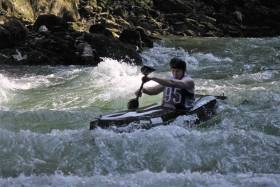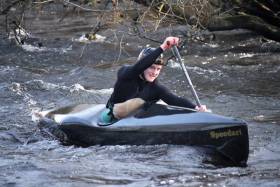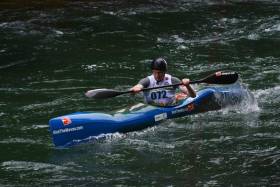Displaying items by tag: Wildwater
Odhran McNally Takes Fifth in World Under-23 Final
#Canoeing: Odhran McNally took fifth place in the men’s Under-23 K1 sprint final at the Wildwater World Junior and Under-23 Championships in Banja Luka in Bosnia and Herzegovina today.
The 22-year-old Irishman finished in 56.54 seconds, just 3.24 seconds behind gold medallist Anze Uranakar of Slovenia.
Wildwater Canoeing Under-23 World Championships, Banja Luka, Bosnia and Herzegovina (Irish interest)
Men
K1 Sprint Final: 1 A Urankar (Slovenia) 53.30; 5 O McNally (Ireland) 56.54
Darragh Clarke Completes Hat-Trick of Wins in Czech Republic
#Canoeing: Ireland’s Darragh Clarke won the junior event at the Krumlovsky Vodacky Marathon in the Czech Republic – his third consecutive win at this level in this event. The 18-year-old wildwater paddler from Chapelizod was taking part in the marathon event in Cesky Krumlov for the fifth time.
McNally Impresses at Wildwater World Championships
#Canoeing: Odhrán McNally finished eighth in the K1 men's sprint final at the ICF Wildwater World Championships on the Vrbas river, Banja Luka, Bosnia. The 19 year old was competing in his first senior wildwater Competition. He placed 17th out of 71 boats in the Classic race.
The heats for the Sprint final were hotly contested by world ranking paddlers. McNally placed 7th and 10th respectively winning him a place in the individual sprint final night race. McNally's time in the final, 54.98 seconds, was just 2.35 seconds off the race leader and 2016 WWR World Champion Maxime Richard of Belgium.
McNally now moves on to Celje in Slovenia for to race at the ICF Wildwater Canoeing World Cup Series which takes place June 9th to 11th.
































































